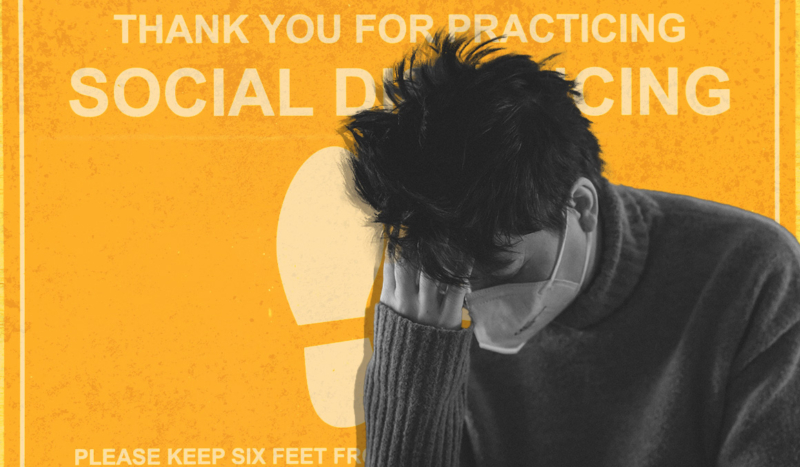
CV NEWS FEED // A new study confirmed that people who abided by lockdowns and other stringent COVID restrictions are more likely to suffer from severe mental health issues.
Hannah Murphy of The Messenger reported that, according to research from Bangor University in Wales, “the more compliant people were with COVID lockdown restrictions in early 2020 the more likely it is that they continue to suffer from anxiety and depression today, more than three years after the initial lockdowns.”
Murphy explained that the study
divided 1700 people into two types of personalities based on their behavior during and perceptions of the 2020 COVID restrictions.
Participants either had an agentic personality — meaning they were more self-serving — or communal personalities, who have more concern for others.
People with communal personalities were more likely to strictly adhere to COVID restrictions. Follow-up mental health assessments that took place every two weeks from February to May 2023 revealed that this group was also more likely to have lower overall wellbeing in comparison to the agentic personalities.
“Human personality can be considered through the lens of two broad dimensions known as agency and communion,” wrote the study’s researchers. “Agency reflects competence, independence, achievement and is characterised by a strong drive for control, power and influence, whereas communion relates to factors such as agreeableness, social dependence, and caring and is characterised by nurturing and cooperative behaviours.”
“Individuals higher in agentic personality were less likely to comply with lockdown regulations, infection prevention advice, and health messaging compared to individuals higher in communal personality,” the researchers continued.
Again from the study’s findings:
During the COVID-19 lockdown, anxiety-provoking health messages were effective in improving compliance. However, messages targeting people’s recovery and transition back to normality post-lockdown were less prevalent, potentially hindering the recovery of millions.
Our findings suggest that, although increasing worry is effective in driving behavioural compliance during pandemics, using such strategies undermines people’s well-being and psychological recovery. Specifically, people with higher Communal traits are likely to still be suffering from the effects of the lockdown period for some time after restrictions end.
Prominent critics of COVID lockdowns had much to say about the results on X (formerly Twitter):
“My ‘X’ feed confirms this,” wrote actor Matthew Marsden.
“Oh, we know,” added singer-songwriter Five Times August.
“Just amazing,” posted journalist Stephen L. Miller.
American Commitment and Committee to Unleash Prosperity President Phil Kerpen went a step further. “People with mental health issues were always more likely to follow COVID recommendations,” he wrote.

